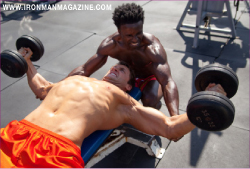 In the May ’96 issue of Muscle Media 2000, the late Dan Duchaine, known as the “steroid guru,” discussed a substance that he dubbed “Flavone-X.” Duchaine claimed that Flavone-X, which was a natural flavone existing in plants, could boost testosterone an average of 20 to 30 percent. It turned out that Flavone-X was actually an esoteric substance called chrysin. A study had been published that compared the activity of a number of natural flavonoids and flavones to the drug Cydadren in their ability to inhibit the enzyme aromatase, which works by converting androgens, including testosterone, into estrogen. Blocking the effect of aromatase would not only lower estrogen levels but also boost testosterone. Elevated estrogen in the blood sends an inhibitory message to the pituitary gland in the brain, which responds by lowering the output of gonadatropins, hormones that stimulate the body’s testosterone production.
In the May ’96 issue of Muscle Media 2000, the late Dan Duchaine, known as the “steroid guru,” discussed a substance that he dubbed “Flavone-X.” Duchaine claimed that Flavone-X, which was a natural flavone existing in plants, could boost testosterone an average of 20 to 30 percent. It turned out that Flavone-X was actually an esoteric substance called chrysin. A study had been published that compared the activity of a number of natural flavonoids and flavones to the drug Cydadren in their ability to inhibit the enzyme aromatase, which works by converting androgens, including testosterone, into estrogen. Blocking the effect of aromatase would not only lower estrogen levels but also boost testosterone. Elevated estrogen in the blood sends an inhibitory message to the pituitary gland in the brain, which responds by lowering the output of gonadatropins, hormones that stimulate the body’s testosterone production.
In the study that compared natural flavonoids to Cytadren, chrysin came out on top, actually showing effects against aromatase that were superior to the potent drug. The problem was, it was an in vitro, or isolated-cell, study. The question then became, How well does chrysin work in the body? Humans had unknowingly been consuming chrysin, since it’s found naturally in honey, propolis and in the passion flower plant, but initial animal-based studies proved disappointing.
In one study, in which chrysin was given to mice, the mice not only had no changes in testosterone but also gained significant amounts of bodyfat. That unexpected side effect was attributed to the fact that flavones and flavonoids often have an inhibitory effect on the production of thyroid hormones, which would slow the resting metabolic rate. As a consequence, the chrysin-eating mice got fat but gained no muscle.
Further studies showed that, as with most flavonoids and other flavones, it’s hard for the body to absorb chrysin. In most cases it merely passes through the body and is excreted without exerting any biological activity. In a 2003 study researchers gave extracts of honey and propolis, both rich in chrysin, to 20 healthy males, aged 25 to 30 for 21 days.1 None of the men showed any changes in testosterone or estrogen. The study was criticized because of the low dose of chrysin used. In other animal studies, however, chrysin seemed to lower animals’ anxiety levels.
The most recent animal study divided rats into two groups.2 One group got corn oil, while the other group got 50 milligrams per kilogram of bodyweight of chrysin. An important point was that both the corn oil placebo and the chrysin were provided by gavage, which means that they were delivered directly to the gut through a feeding tube. That technique may have overridden any usual interference with chrysin uptake into the body. The results showed that the rats given chrysin had favorable changes in antioxidant activity and sperm movement and shape, which pointed to increased fertility. The rats on chrysin also had significantly higher testosterone than the controls. One obvious problem with this study is the method of administration, gavage. I doubt that even the most enthusiastic bodybuilder would ever resort to inserting a tube directly into his gut to deliver chrysin.
Even so, we get a clearer picture of just how effective chrysin is courtesy of two studies that involved human subjects—and athletes to boot. They were presented at the 2011 American College of Sports Medicine meeting. The first study examined the effects of chrysin on body composition, muscle strength and exercise performance. Twenty throwing athletes (I would guess that means they participated in events such as shot put, javelin, hammer throw and discus), 14 men and six women, were randomly assigned to either a control group or a chrysin group. Those in the chrysin group got three grams of chrysin a day for 21 days, while the control subjects got a placebo for the same amount of time. The authors tested the athletes for body comp, muscle strength and exercise performance on days one, eight and 22. The results showed no differences between the groups.
The same researchers used the same subjects and study design to directly measure the effects of chrysin on blood and urinary levels of testosterone. Again, the subjects got three grams of either a placebo or chrysin for 21 days. This study replicated the results of the previous study, in that the researchers noted no changes in testosterone in any of the athletes who took chrysin.
It’s clear that chrysin seems to work better in a test tube than it does in the human body. The reason for that is likely the difficulty in absorbing chrysin into the body. Some have suggested a few ways around that formidable barrier. One suggestion is to offer chrysin in a topical cream. Considering that gavage delivery did seem to boost uptake in rats, the topical technique may have some merit. As far as I know, however, there is no existing study that has tested the effectiveness of a topical chrysin supplement.
Another suggested way to improve chrysin uptake is to combine it with piperine, an extract of pepper that appears to increase the absorption of various hard-to-absorb nutrients, including curcumin and coenzyme Q10. How piperine does that isn’t clear, but it may relate to a localized irritation effect in the intestines that makes the cells lining them more permeable than usual. Whether these methods would actually make chrysin more effective as a supplement awaits further study.
Magnesium and Testosterone
About 10 years ago one of the most popular bodybuilding supplements was known as “ZMA.” The acronym stood for zinc-magnesium-aspartate, and the supplements also included vitamin B6, which acts as a coenzyme in mineral metabolism. ZMA was touted as being effective at boosting anabolic hormones, particularly testosterone and insulinlike growth factor 1.
Indeed, in a study published in 2000, giving ZMA to a group of football players did result in significant boosts in testosterone and IGF-1. Later studies, however, did not replicate those findings. Most of the studies involved athletes who weren’t deficient in any of the nutrients contained in ZMA, so it makes sense that they wouldn’t experience any improvements after using the supplement. But the truth is that many athletes who don’t use food supplements may well be low in either zinc or magnesium, and in some cases, both.
Magnesium exists naturally in foods often avoided by active athletes who fear weight gain, including nuts and vegetables. Since magnesium is vital for protein and fat metabolism, as well as energy production, however, not getting enough can eventually manifest itself as lack of recovery and muscle gains, as well as energy deficits.
Recent studies show that magnesium does appear to have an effect on testosterone and IGF-1. For example, in a study of 399 older men, age range 65 to 92, the men’s magnesium levels showed a clear relationship to their levels of both testosterone and IGF-1.3 The authors even suggest that a lack of magnesium, because of its relationship to anabolic hormones, may play a role in the onset of both increased body inflammation and loss of muscle mass with age. The researchers speculate that magnesium has antioxidant effects that block the premature destruction of anabolic hormones, including testosterone. They note that other studies have shown that magnesium increased various marks of exercise performance, including grip strength and overall muscle strength.
What about younger people: Does magnesium affect their testosterone levels? Another study examined the effects of a month of magnesium supplementation on the testosterone of athletes practicing tae kwon do and sedentary controls.4 The subjects’ testosterone was measured before using magnesium, after training to exhaustion without magnesium, at rest after using magnesium and after training to exhaustion with magnesium. The subjects were divided into three groups; group one was sedentary but took 10 milligrams of magnesium per kilogram of bodyweight, while the group two, the tae kwon do athletes, trained 90 to 120 minutes a day, also taking 10 milligrams of magnesium per kilogram of bodyweight. The last group consisted of tae kwon do athletes who didn’t get any magnesium. The results showed higher levels of free testosterone in both the sedentary and exercising groups who got the magnesium supplements, but increases were highest in those who exercised and also supplemented magnesium.
Since magnesium is excreted during fat-burning processes, is required for complete protein utilization and also is depleted by high-stress conditions, it would be prudent for all bodybuilders to ensure that they get adequate amounts of the mineral. How much is needed depends on bodyweight and activity levels, but the suggested range is 500 to 900 milligrams a day. Don’t take more than 300 milligrams at a time, however, unless you enjoy having a raging case of diarrhea.
Editor’s note: Jerry Brainum has been an exercise and nutrition researcher and journalist for more than 25 years. He’s worked with pro bodybuilders as well as many Olympic and professional athletes. To get his new e-book, Natural Anabolics—Nutrients, Compounds and Supplements That Can Accelerate Muscle Growth Without Drugs, visit www.JerryBrainum.com. IM
1 Gambelunghe, C.,et al. (2003). Effects of chrysin on urinary testosterone levels in human males. J Med Food. 6:387-390.
2 Ciftci, O., et al. (2011). Beneficial effects of chrysin on the reproductive system of adult male rats. Andrologia. Published online March 7.
3 Maggio, M., et al. (2011). Magnesium and anabolic hormones in older men. Int J Androl. 34:e594–e600.
4 Cinar, V., et al. (2011). Effects of magnesium supplementation on testosterone levels of athletes and sedentary subjects at rest and after exhaustion. Biol Trace Min Res. 140:18-23. IM











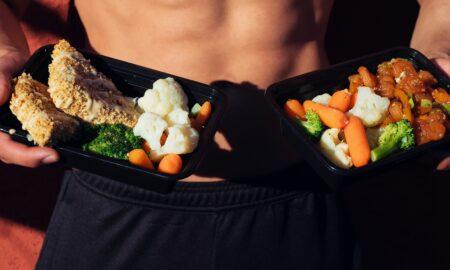
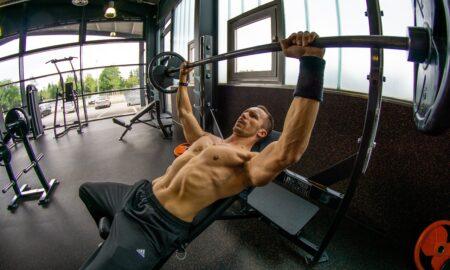
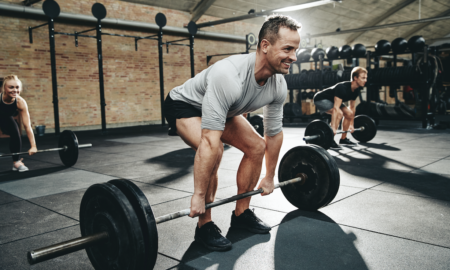
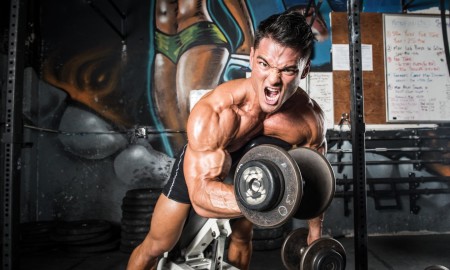

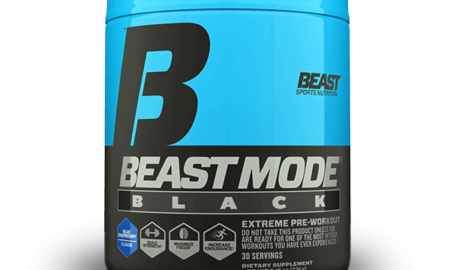
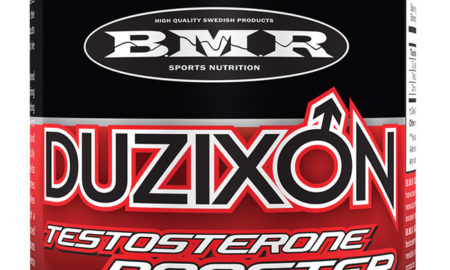
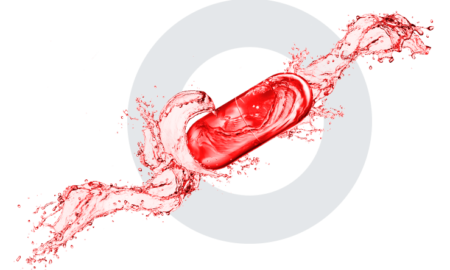

You must be logged in to post a comment Login